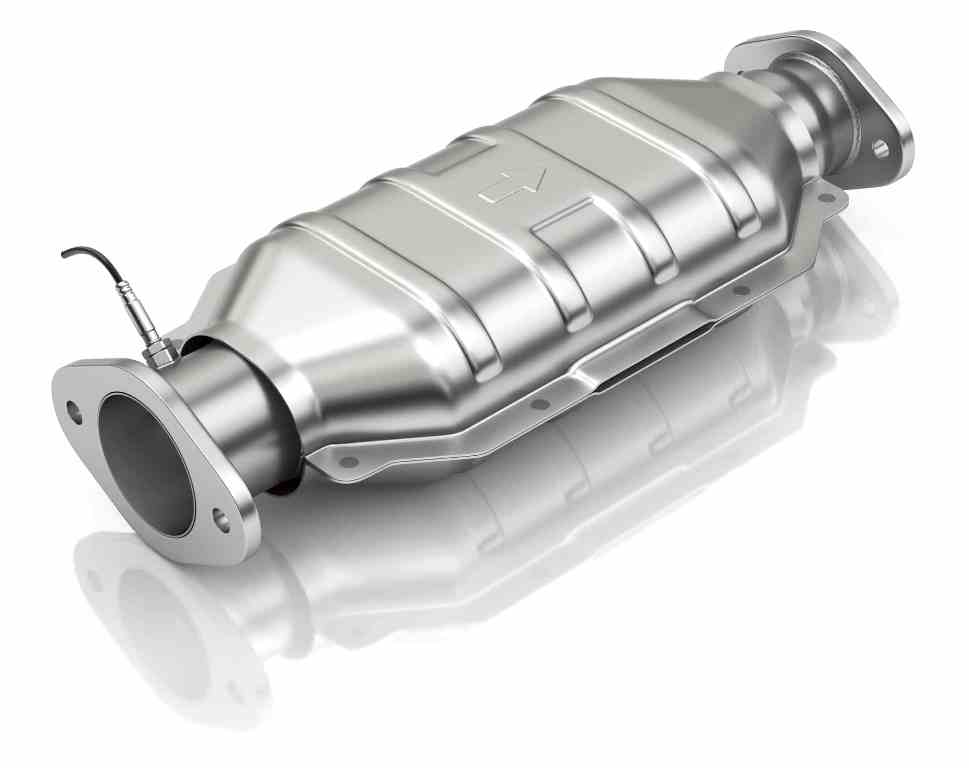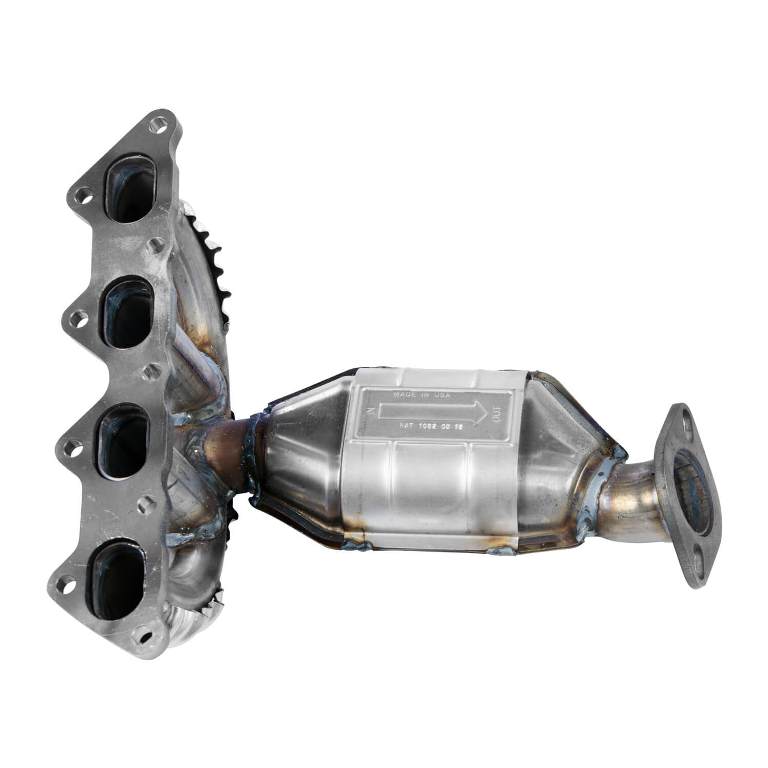Catalytic converters do one basic job: converting exhaust pollutants into less harmful gasses. These components can last 10 years or more, but they can still develop problems. With a faulty catalytic converter, your vehicle’s engine performance degrades or stops entirely. When it’s time to replace it, you do have some options. If you can’t decide between a universal catalytic converter and a custom model, here are a few things to consider.
Common Catalytic Converter Problems
Chances are, you’re reading this because you need a replacement catalytic converter. Common problems include contamination, clogging, overheating or physical damage. Thieves also steal them because they contain precious metals like palladium, platinum and rhodium. A bad converter can cause a lethargic engine, acceleration problems, or excessive heat under your vehicle. Dark smoke or a rotten egg smell may also come from your exhaust. Finally, a converter problem can trigger your “Check Engine” light to come on.

Catalytic Converters and the Law
Since 1975, the EPA has required all vehicles to have catalytic converters. Federal law lays down some basic guidelines, allowing their replacement under certain conditions:
- The vehicle’s catalytic converter is missing.
- A state or local inspection has found that the existing one needs replacement.
- A legitimate replacement need is documented and the vehicle has met specific mileage and age requirements.
Keep in mind that state laws on catalytic converters can be stricter. A trusted auto service professional can give you more information about the laws in your area. Replacement converters must be certified as EPA compliant, or CARB compliant if you’re in California, Maine or New York.
What Are Universal Converters?
You’ll usually find two types of catalytic converters on the market: universal and direct fit. Universal converters aren’t vehicle-specific and can fit a wide range of models. However, they usually require welding in place during installation. Depending on the converter, installation may also require cutting pipes to the proper length and purchasing the correct sensors.
Custom Catalytic Converters
Direct-fit or custom catalytic converters are manufactured for specific vehicles. For instance, Ford Mustang catalytic converters are made to only fit Ford Mustangs. They’re designed to directly bolt onto the vehicle, so they usually don’t need to be welded. Customer converter kits also come with the extensions, brackets and other accessories needed for a correct fit. They can be pricier than universal converters, but they match original factory exhaust systems.

Important Shopping Tips
Whether you’re shopping catalytic converters for a Ford Mustang, Dodge Challenger or Jeep Gladiator exhaust, it’s important to keep a few things in mind. Professional installation is ideal for both universal and direct-fit converters. Universal versions are usually less expensive than direct-fit models, but installation may take longer and involve more work. You’ll pay a little more for custom converters, but they’re made for OEM exhaust systems.
Choose a Dependable Supplier
Once you decide what type of catalytic converter you need, you need to find a reliable supplier. Your best bet is choosing a retailer specializing in exhaust components. For custom converters, a specialty manufacturer can guide you in selecting the right model for your vehicle’s exhaust.








